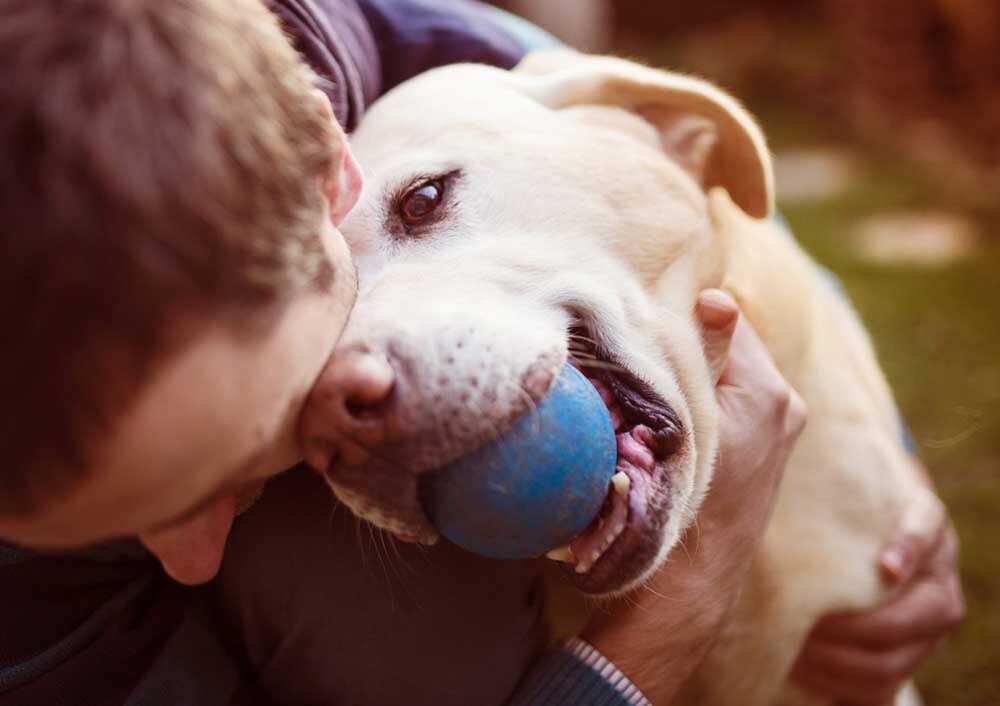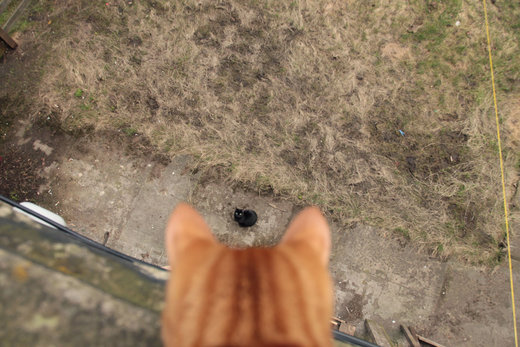When a person is overcome with emotion, their feelings stream down their cheeks. Even positive emotions can turn on the waterworks, as people bawl when they win awards, express love for their partners, or are reunited with a long-lost friend..
But these feelings-driven tears may not be a wholly human experience. Dogs can also cry happy tears, according to a study published today (August 22) in Current Biology. Although the animals' eyes don't overflow, they well up when they're reunited with their owners after spending even just hours apart, the researchers found. And they have hunch as to why: a sudden increase in oxytocin, the so-called love hormone, named for its predominant roles in social bonding.
Christine wilcox, "dogs cry tears of joy: study" at the scientist (august 22, 2022) the paper is open access
That shouldn't really be too surprising because the fact that humans and dogs can share emotions is part of what forms bonds between us. But it's good to have a study on record to refer to.
Here are a couple of other recent entries in dog psychology: We are told, dogs may mourn the loss of other household pets:
According to a survey, researchers found nearly 90 percent of dogs that experienced the death of another canine companion living in the same house showed signs of grief. In the months following their buddy's death, dogs were less playful and more fearful. They also had reduced appetites and sought more attention from their owners, reports Clare Wilson for New Scientist.
Signs of mourning were stronger in dogs that had an amicable relationship and shared food with the deceased, reports the Guardian's Nicola Davis. The study was published last week in Scientific Reports.
Elizabeth Gamillo, "dogs may mourn the loss of other household pets" at Smithsonian magazine (march 1, 2022)
Dogs' reaction to emotional loss might be expected. But there are many things they don't understand. One is that death is permanent (that concept is an abstraction). The dog in the video above needed a lot of intervention to just move on and find a new life. The study at Scientific Reports is open access.
Now, brighter news: According to recent research, playful dogs may be more gifted:
When it comes to verbal labels (the name of things), the most gifted dogs also seem to be more playful than typical dogs.So the dog who forces his people to exercise may be smarter than the pooch potato, as well as better for them.
Personality and cognition are distinct domains, both in humans and in dogs. But some personality traits may influence memorizing problem-solving abilities. It's been suggested before that personality traits may even predict some cognitive abilities. In humans, it's been suggested that there is a positive relationship between playfulness and problem solving, but are similar associations present for dogs?
Mihai Andrei, "most gifted dogs share this trait. Does yours?" at Zme Science (august 16, 2022) the paper is open access.
Denyse O'Leary is a freelance journalist based in Victoria, Canada. Specializing in faith and science issues, she has published two books on the topic: Faith@Science and By Design or by Chance? She has written for publications such as The Toronto Star, The Globe & Mail, and Canadian Living. She is co-author, with neuroscientist Mario Beauregard, of The Spiritual Brain: A Neuroscientist's Case for the Existence of the Soul. She received her degree in honors English language and literature.




Comment: See also: